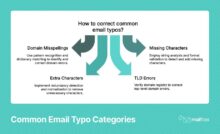Most Content Marketing Programs Take Well over a Year to Bear Fruit


You don’t have to convince marketers about content marketing anymore…at least to try it. You have to convince them that it takes time and patience for it to work.
Introduction
At mailfloss we’re focused on helping email marketers get the most from their email marketing campaigns. We do this in a few different ways. First, we help email marketers improve their deliverability through the use of our email list verification service. Secondly, we work hard to educate email marketers on the various topics relating to running a successful email marketing campaign.
Today, mailfloss had the opportunity to chat with Joe Pulizzi, the founder of Content Marketing Institute, about trends in the content marketing space and how these trends could have an impact within the world of email marketing.
Without further ado, let’s jump into the interview.
The Interview
Hi Joe and thank you for joining us today to talk about your experience in the marketing space. To say you are a leader in this space is an understatement. You’re a best selling author and the founder of Content Marketing Institute, a leading global content marketing and education company. Let’s have you jump in and tell us what it was about content marketing that pulled you in early on and never let you go?
I’ve had a special place for the practice of content marketing since the year 2000. That was the first year I knew something like content marketing was actually a thing. I fell in love with the idea that we could deliver communications to our customers and prospects that actually made their lives better (regardless if they bought the product or service). That you could actually help and teach people, and by doing so, they were more likely to buy your offerings.
You were WAY ahead of the trend when it came to seeing the power of content as a marketing and sales tool. Why did you have such faith in content as a form of marketing before others saw the potential? Did you have a particular positive business experience that made you realize “wow this is an area I need to double down on”? If so, what was that experience?
First of all, content marketing has been around for hundreds of years, even though the term is relatively new (a little over 10 years). I believed in it because I saw it work first hand. I sold content marketing services to large business-to-business companies and saw that it was helping them build amazing relationships through email newsletters, custom magazines and then later into blogs and social media.
After selling it to customers for seven years, I went “all in” on the practice to eventually create Content Marketing Institute. I saw so much potential but there was very little information available for marketers on how they could do it right. Shortly after CMI was created, we knew that an event was critical to the industry’s growth. So we launched Content Marketing World. Today, the content marketing community comprises the most amazing people I have ever met.
In your very early days, what were the biggest doubts and criticisms you heard about content marketing? How big of a challenge was it to get businesses to see the potential you saw in content marketing?
There were many. How do I sell it internally? How do I know it will work? Where can I find budget for something like this? How do I integrate it with the rest of my marketing? These are all reasonable questions that happen from anything new.
The challenge was that 15 years ago there were not many case studies available. Then Red Bull came along. Then BlendTec. And then a hundred more. Once the large enterprises, like Microsoft, started to dabble in it, we became confident that we were on the right track.
Today, how have those doubts changed? When you hear people doubt content marketing as an effective marketing tool today, what are their common objections? How do you respond to these doubts or rejections?
You don’t have to convince marketers about content marketing anymore…at least to try it. You have to convince them that it takes time and patience for it to work. Most content marketing programs take well over a year to bear fruit. This is a challenge since most enterprise marketers have the patience of a gnat. Content marketing programs are generally killed, not because of lack of results, but because the executive team either loses faith in the program or doesn’t understand what the content marketing team is trying to do.
That’s why, right from the beginning, you have to tell the marketing executive team not to expect anything for nine to 12 months. Now, you may reap benefits before that, but you need to keep expectations in line. It takes time to build quality relationships with customers.
How have you seen content marketing strategy shift in the last 5 years? Are there any interesting content marketing trends you’re seeing as being unusually effective?
The biggest shift I see happening right now is that large brands are starting to consider buying distressed media assets instead of just building internally. I believe this is a huge opportunity for brands out there who want to shorten the cycle of building loyal relationships. Also, with all the privacy regulations going on right now, first-party data is critical…so purchasing first-party databases is incredibly smart. I just wrote an article about how media companies are selling to their advertisers.
If you had to give a percentage for the amount of revenue that content drives for your company (or client companies you’ve worked with), what would you say the % of revenue that content drives in most cases?
That’s a tough question. When I was at CMI, 99% of our revenue came from content marketing initiatives because that’s all we did to market. Also, content marketing programs should work with your advertising and PR programs (not separately). That said, in most innovative companies you are seeing at least one or two touch points that lead to a sale come from content marketing approaches. This could be an article they find in a search engine. A subscription to an email newsletter or magazine. Listening to a podcast. Watching a webinar, etc.
You previously talked about buying distressed media properties. If you had to acquire a web property to help Content Marketing Institute, what type of property would you be looking for? What traits would you want your acquired web property to have and what role would you want it to play in your portfolio?
I would be looking for the leading education brand in an industry. This could be led by a podcast or a YouTube series or an event. I’m most interested in the first-party database. Is it growing? What’s the open rate like? How are unsubscribes? What’s the purchasing power of the audience? I would also want to know if they are monetizing the content brand in multiple ways – advertising/sponsorship plus direct sales or more.
You’re deeply involved in the world of email marketing as well. As a content marketing specialist, you bring a unique perspective to the world of email marketing. Do you think your background in content marketing heavily influences the work you do with your email marketing campaigns? If so how?
I believe that email marketing is the cornerstone of any content marketing approach. I fully believe in growing subscribers, and the best way to do that (today) is through email. I don’t see this changing anytime soon.
Thank you greatly for taking the time to chat with the mailfloss email marketing blog readers today Joe. We really appreciate you taking the time. To our audience, if you’d like to learn more about Joe and the work he does, you can follow him on Twitter or head over to his website here.
Recent Posts
Improving Email Deliverability with Typo Correction: Our Set-and-Forget Solution
Boost your email marketing performance with mailfloss's automated typo correction. Learn how this set-and-forget solution…
What Is a Bounce Back Email?
Learn what causes bounce back emails, how they impact your marketing, and proven strategies to…
What Is a Burner Email and Why You Might Need One
Discover what burner emails are, how they work, and why they're essential for protecting your…
7 NeverBounce Alternatives: Email Verification for Specific Business Models
NeverBounce is a well-known email verification platform that helps businesses reduce bounce rates and improve…
Boost Deliverability Rates with a Reliable Email Address Correction Tool
Learn how email address correction tools can increase deliverability rates by up to 15%, fix…
The Overlooked Benefits of Real-Time Typo Correction in Email Forms
Discover how real-time typo correction in email forms improves deliverability, enhances user experience, and saves…
